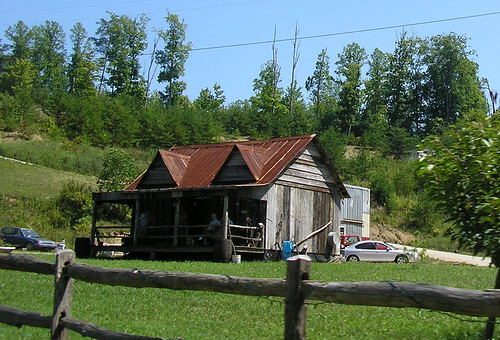Environmental Probabilism Pdf
Advertisements: 1. Determinism 2.
Environmental change in the inhabited world at all time scales, from the distant past to the present, and into the future. Indeed studying environmental change is an integral part. ©Encyclopedia of Life Support Systems(EOLSS) “, and for. Geography - Maria Sala.

Possibilism 1. Determinism/Environmental Determinism: The essence of the determinist school of thought is that the social, cultural life of society or of a nation is governed by physical factors (climate, drainage, flora, fauna) of environment. Man is considered as a passive agent and the environmental factors determine their attitude and life style.
During the era, different geographers attempted to explain the phenomena that human action is controlled by environment and Greek and Roman geographers were the first to introduce this idea. Advertisements: Aristotle explained the differences between Northern Europeans and Asian in terms of climatic causes. Strabo (Roman geographer) says, “slope, relief climate are works of God which governs the life style of people.” This environmental causation continued throughout the nineteenth century. Fredrich Ratzel, the founder of “new determinism”, supplemented ‘classical geographical’ determinism with elements of “social Darwinism”. Customizer 11000 download. He argued that “similar location led to similar mode of life”.

Citing examples of British Isles and Japan that both have insular location which provides natural defence against invaders. Environmental determinism is regarded as over simplistic because it has neglected the cultural factors which also affect human behaviour. However determinism had been criticized. (i) It is not a universal hypothesis which can be tested empirically. People make their own history, culture and are creatures of rules.
Hence, man is not a product of his environment but creation of his rules and customs. (ii) Spate criticised the fanatic approach by saying that “environment itself is a meaningless phrase”. Without man environment does not exist.
He concluded that geographical environment is only one of the factors of territorial differentiation that acts through society. Possibilism: Febvre and other geographers tried to explain the man and environment relationship in a different way, taking man as an active agent in environment. He named this point of view as “possibilism”. According to him, the true and only geographical problem is that of utilization of possibilities as there are no necessities but everywhere possibilities. This concept was advocated in the writings of Vidal de Lablache and Brunahes in France, and Bowman and Carl Suer in U.S.A.
Although the philosophy of possibilism became very much popular after First World War, it was Vidal de Lablache who advocated & preached the philosophy of possibilism and was a staunch supporter. He developed the “School of Possibilism”. The possibilists argued that it is impossible to explain the difference in human society and history of that society with reference to the influence of physical environment. The philosophy of possibilism is the belief that people are not the products of environment, but, in fact, the work of man not the earth and its influence are the starting points. According to possibility, nature is never more than an advisor.